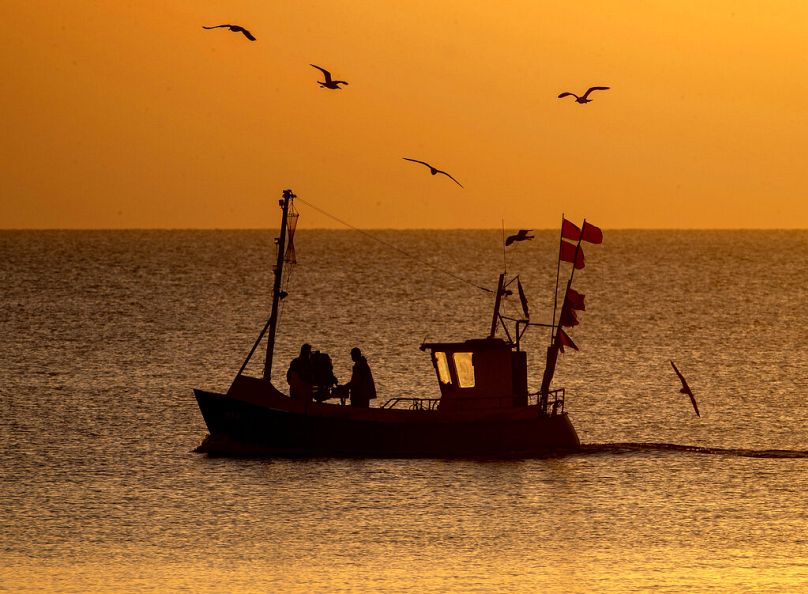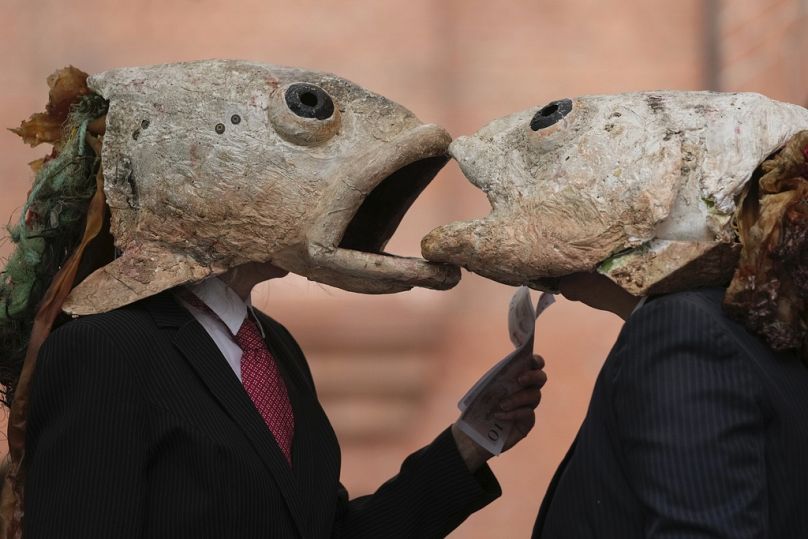We are facing a critical moment to reinforce the EU’s ongoing leadership, legal obligation, and accountability toward safeguarding one of the most vulnerable and biologically diverse areas of the planet, Sian Owen writes.
When the EU advanced its 2030 biodiversity strategy by closing vulnerable marine ecosystems to bottom fishing on 9 October 2022, it was hailed as a visionary step on a global scale.
 ADVERTISEMENT
ADVERTISEMENT
 ADVERTISEMENT
ADVERTISEMENT
Just one year on, Brussels looks set to abandon what was deemed a momentous win for the protection, conservation and restoration of biodiversity.
The closures, implemented a year ago today under the EU Deep-Sea Access Regulation, were made in recognition of the obligation member states have to protect extremely vulnerable marine ecosystems against the impact of overfishing and other human disturbance.
These responsibilities have been reiterated in the EU Marine Action Plan and shared by the United Nations, which recognises the immense importance and value of deep-sea ecosystems and the biodiversity they sustain.
Fragile environments at risk
At risk is a range of fragile environments associated with seamounts, oceanic ridge systems and similar features, where cold-water corals and deep-sea sponges provide a rich habitat for many other species.
Life in the deep is slow to grow and reproduce, and is uniquely adapted to a largely unchanging environment.
That makes it particularly sensitive to destructive fishing gears, such as bottom trawlers, which indiscriminately destroy all life in their path.
Particularly in need of protection are seamounts — underwater mountains that rise from the seabed without breaking the ocean’s surface.
Like oases in the desert, these vulnerable marine ecosystems are enormous reservoirs of biodiversity.
They are important to large marine mammals, such as dolphins and whales, and an extraordinary diversity of fish, exotic sponges and corals.
Just one year later, the regulation is in jeopardy
The Deep Sea Conservation Coalition has been urging the EU to act on its commitments to protect vulnerable ecosystems of the deep ocean from the impact of destructive bottom fishing since 2012 when the European Commission first proposed a new Deep-Sea Access Regulation.
The regulation was finally adopted in 2016, after years of extended debate and negotiations.
Due to a lack of cooperation and low political will among a handful of EU member states with strong fishing industry lobbyists, it took until 2022 to implement the first closures - four years after the deadline required under the regulation.
European Commissioner for the Environment and Oceans Virginijus Sinkevičius’ leadership and steadiness were critical to ensuring this significant win for ocean protection.
Yet, just one year on, the regulation is already in jeopardy. As the EU considers the annual list of proposed area closures for 2023, as recommended by the EU’s scientific body, ICES, some member states are resisting further closures.
These countries should remember that they committed to implementing the regulation when it was adopted by consensus in 2016. That commitment includes acceptance of annual revisions to the list of vulnerable marine ecosystems and further closures to destructive fishing practices.
A look beyond interests
For the EU to meet its biodiversity commitments, it must remain steadfast in its commitment to protect the deep sea.
That requires looking beyond commercial fishing interests and towards the wider, intrinsic value of these unique and fragile ecosystems, whose sheer vulnerability necessitates further European Commission protection.
Such an approach is in line with the Leaders Pledge for Nature to halt and reverse biodiversity loss by 2030, signed by all EU heads of state and European Commission President Ursula von der Leyen.
Commissioner Sinkevičius has demonstrated commitment to implementing these protections to date.
As he enters the final stretch of his mandate, we urge him to steer the adoption of new closures of seamounts and other vulnerable marine ecosystems in EU waters, in line with the requirements of the regulation and the best, and most ambitious, scientific advice.
This is a critical moment to reinforce the EU’s ongoing leadership, legal obligation, and accountability toward safeguarding one of the most vulnerable and biologically diverse areas of the planet.
Sian Owen is Director of the Deep Sea Conservation Coalition, an umbrella of more than 100 non-government organisations, fishers organisations, and law and policy institutes worldwide.
At Euronews, we believe all views matter. Contact us at view@euronews.com to send pitches or submissions and be part of the conversation.












